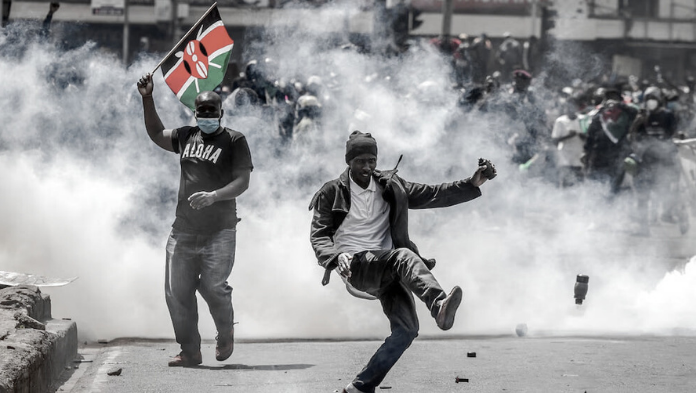The tax packages of the Palace and lessons from Kenya
With July, we, as working people, began to see the “perfect storm” that Şimşek’s policies have unleashed, with all its consequences. At this time last year, in a meeting with bosses, Şimşek said, “I wish the local elections were over tomorrow,” and asked for “patience” from the bosses. In a meeting with bank representatives, Şimşek said, “In this transition period, all sectors must make sacrifices,” and once again put the entire bill on the working people.
While the minimum wage and the salaries of millions of pensioners are not raised in the name of “sacrifice”, the belt around the necks of the working people is tightened more and more every day with new increases and tax burdens, claiming that “the minimum wage is not low in Turkey”.
While they talk about sacrifice and almost more than half of incomes of wage earners go to taxes and social security expenditures, last year, Turkey’s largest company Tüpraş paid 12 percent in taxes, the second largest company paid 4 percent and Arçelik paid 1.6 percent. While these corporations, all owned by Koç Holding, paid these symbolic taxes, the Palace’s “gang of five” (Beşli Çete in Turkish includes five companies such as Limak and Cengiz Holding that are extremely favored by the regime) mostly paid no taxes at all and moreover, received 100 billions of lira in incentives.
Against this backdrop, the Palace regime has come up with a new tax package. Although Şimşek says, “Our preference is to tax areas that are not taxed, not to impose a new tax burden on our citizens,” no new measures for the companies listed above are on their agenda.
Of the 4.5 trillion liras in taxes collected last year, only 1 trillion 275 billion was paid by companies, while wage earners paid about 2.5 trillion. While the operating profits of the 500 largest companies amounted to 1 trillion liras, the total amount of taxes and incentives that will not be collected from the bosses this year exceeds 1.5 trillion liras. No need for more figures! It is quite clear where the tax should come from. In the new tax package they are trying to pass in July, apart from a few token steps for the bosses and the rich, the real target will again be the working people and the poor of the country.
However, there are also those who see this picture as very positive and optimistic. “Over the past two decades, Turkey has performed excellently in terms of both growth and poverty reduction (…) GDP has been quadrupling every 26 years. On the other hand, the poverty rate has fallen from around 27% in 2005 to less than 8% in 2021, and our forecasts suggest it will fall further in 2022 and 2023.” The person painting this picture is Humberto Lopez, World Bank Turkey Director. The AKP’s IMF policy without the IMF could not have been better summarized!
The tension created by this policy, which is hostile to the working people, also finds its reflection on the People’s Alliance. After its knife-edge victory in the May elections, the AKP-MHP alliance, which suffered a heavy blow in the March elections, is engaged in tough and dirty negotiations over the Sinan Ateş and Bora Kaplan cases. With the debate on the new constitution and the rhetoric of “softening” (détente?), the Erdoğan administration is also trying to pacify the opposition and keep it on the sidelines.
So, is it possible to get out of this bind? In these days of such a high level of social anger, the CHP is once again playing the role of “His Majesty’s opposition” with symbolic rallies on the one hand and discussions on early elections on the other. Trade union leaders, on the other hand, are doing their best not to go beyond “critical statements”.
The “tax revolt” in Kenya has once again shown that the way out of this bind is in the hands of the working people, not in the hands of the opposition. The working people of Kenya, ruled by IMF policies like Turkey and facing a new tax package just like us, took to the streets, seized the parliament and paralyzed life, and forced the government to withdraw this attack package. The solution is not to wait for a savior with the illusions of early elections, but to take our own destiny into our own hands by forcing unions and labor organizations into a united plan of struggle. Two, three more Kenya!



Yorumlar kapalıdır.